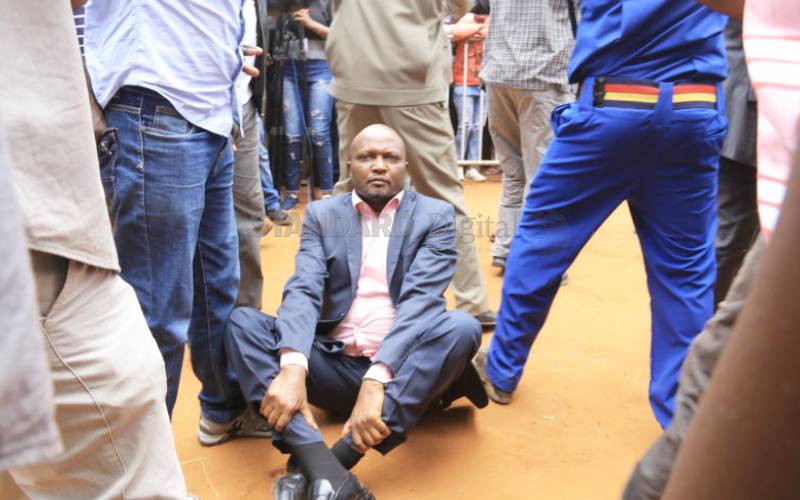×
The Standard e-Paper
Kenya’s Boldest Voice

Gatundu North MP Moses Kuria at Kitui stadium during the BBI rally before he was later allowed on the dais and given a seat. [Emmanuel Wanson]
I am a proud alumnus of the Hill School in Eldoret. Under the leadership of the indefatigable Robert Paul Scott, the school was way ahead of its time in many respects. In an age where little children were there to be seen and not heard, we were allowed the freedom to express ourselves, a departure from other institutions of the time.